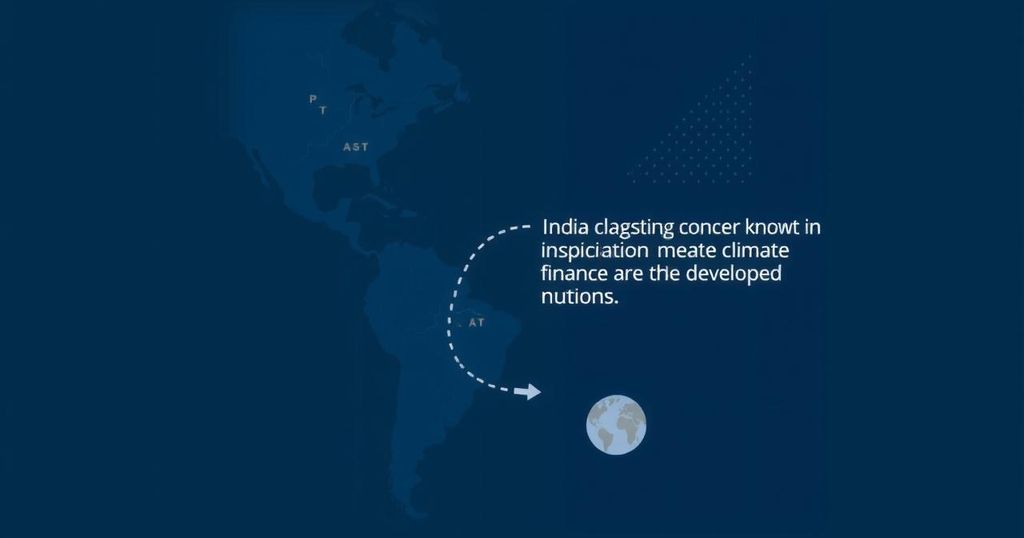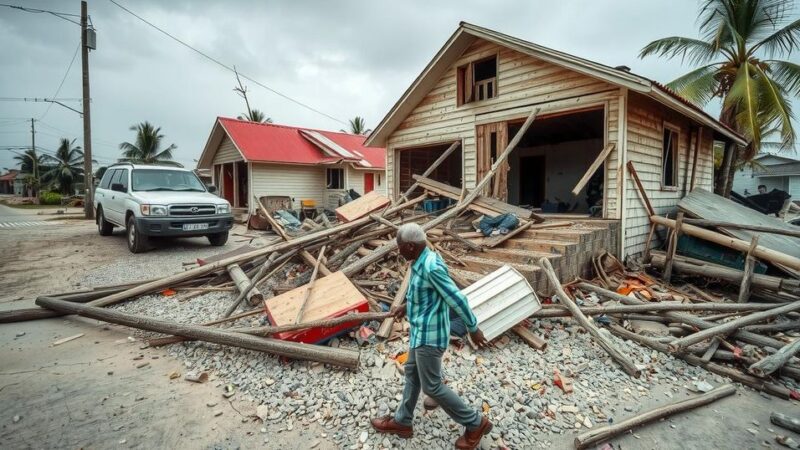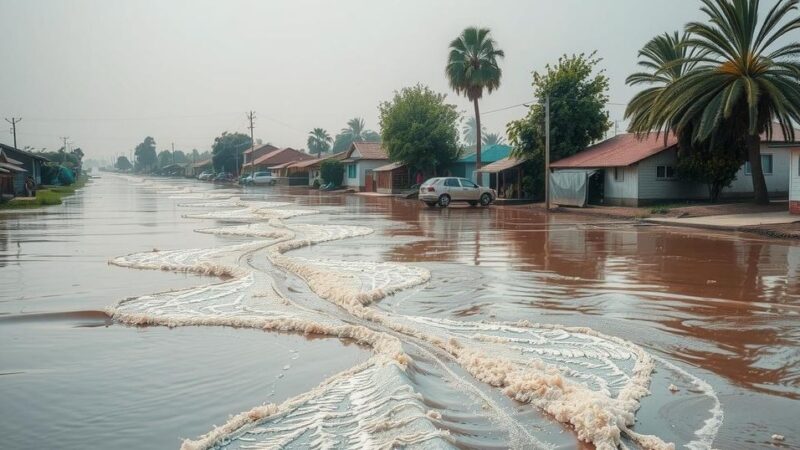India presented arguments at the ICJ on December 5, stressing the inadequate climate finance from developed nations and advocating for a necessary increase to $1 trillion annually. The hearings reflect a collective effort from over 98 countries, including discussions on the historical responsibilities of developed nations in contributing to climate change and the obligations toward vulnerable states.
In a significant session at the International Court of Justice (ICJ) on December 5, India underscored the pressing necessity for equitable global action on climate change. The nation articulated its concerns regarding the inadequacy of climate finance provided by developed countries. India, alongside other developing nations and small island developing states, is advocating for a substantial increase in climate financial assistance—to a level of at least $1 trillion annually, aimed at supporting global conservation efforts.
Despite the negotiations at COP29 in Baku, Azerbaijan, which saw a commitment to allocate $300 billion, this amount falls short of the $1 trillion India has long sought. This discrepancy has left many vulnerable nations feeling neglected, particularly in light of inadequate financial support pledges first made during the 2009 COP15 in Copenhagen, in which a mere $100 billion was promised. Luther Rangreji, Joint Secretary and Legal Adviser at the Ministry of External Affairs, emphasized that the promised assistance is “too little, too distant” and does not conform with the expectations outlined in Article 9 of the Paris Agreement.
During the hearing, India raised valid points regarding the historical responsibility of developed nations as the most significant contributors to climate change. Mr. Rangreji argued that it is unjust to expect developing nations, which have contributed minimally to global warming, to shoulder equal burdens. He stressed that those who have benefited from extensive fossil fuel exploitation must not restrict the energy utilization of developing countries.
The hearings, which commenced on December 2, are pivotal as they respond to petitions from over 98 countries, led by Vanuatu, which seeks to clarify state obligations concerning climate change impacts—particularly for vulnerable nations like small island developing states. Vanuatu’s Minister of Climate Change, Ralph Regenvanu, poignantly articulated the existential threat posed by climate change, stating, “We look to the court for recognition that the conduct that has already caused immense harm to my people… is unlawful.”
Throughout the proceedings, representatives from various small island states, including Antigua and Barbuda, expressed their anguish over rising sea levels, climate-induced destruction, and economic burdens stemming from climate change. Antigua and Barbuda’s Prime Minister, Gaston Browne, lamented the substantial debt faced by his country as they strive to recover from climate-related damages, noting, “We are already at the receiving end of the debt burden and have not fully developed, then why should we pay the price of the actions of the developed states?”
As the hearings continue until December 13 in The Hague, with participation from 91 states and 11 international organizations, the outcomes hold significant potential for shaping future international climate law. Although the ICJ’s advisory opinions are not legally binding, they may provide vital legal guidance concerning states’ responsibilities in addressing the climate crisis.
The ongoing ICJ hearings represent a historic opportunity for nations affected by climate change to voice their concerns regarding inadequate climate financial support from developed countries. The necessity for a substantial increase in funding, particularly for developing nations and vulnerable small island states, stems from an ongoing dialogue that began with the Paris Agreement in 2015. Historically, developed countries have committed to significant financial assistance, yet the reality has fallen dramatically short of these pledges—leaving many nations grappling with the dire consequences of climate change without the necessary support to implement effective mitigation and adaptation efforts.
In summary, India’s arguments at the ICJ underscore a critical plea for increased climate financial support from developed nations, aligning with the broader aspirations of developing countries and small island states. The hearings highlight an urgent need for accountability and action within the international community to address the disproportionate impacts of climate change. As proceedings continue, the outcome may plot a path forward in defining state responsibilities and obligations concerning climate finance and environmental justice.
Original Source: www.outlookbusiness.com







